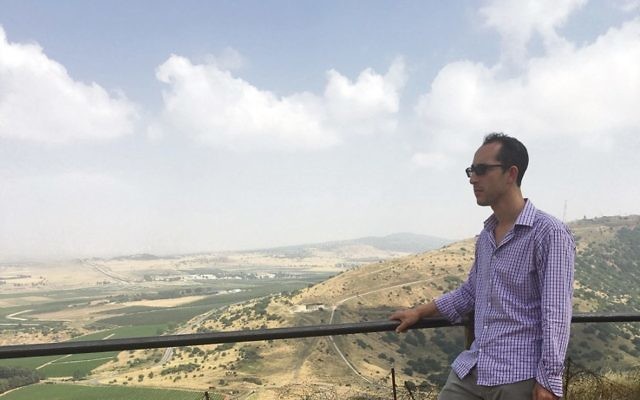Russian pledge on Syria
Moscow’s Foreign Minister Sergei Lavrov said on Monday that “only representatives of the Syrian armed forces will be deployed on the Syrian side of the border with Israel".
YOU could hear the familiar sound of booms on Mount Bental on Tuesday. But this border area with Syria could be about to undergo one of its biggest changes in years, if this week’s diplomacy bears fruit.
The moment may finally be arriving when Iranian power around here is to take a nosedive.
As I watched tourists order ice coffee at the peak of the mountain, it’s almost certain that at least one or two Iranian operatives, standing a short distance away in Syria, could see me through their viewfinders.
But Iranians may soon be on the move out of this area now that Russia has just decided to purge them from the stretch around the Israel-Syria border.
Moscow’s Foreign Minister Sergei Lavrov said on Monday that “only representatives of the Syrian armed forces will be deployed on the Syrian side of the border with Israel”.
You don’t even need binoculars here to understand the significance of this. As I look down, just three kilometres away I see Al-Quneitra. I can hear the regime shelling rebels, but the anti-rebel campaign in by this border is about to get a whole lot more intense.
Al-Quneitra is a major focus of a new operation that Syria’s army is about to launch. It will be Syria’s “biggest offensive of the year,” according to one pro-Syria news site, which added the aim is to drive rebels away from the border with Israel, and put the Syrian regime in full control.
The quickest and most efficient way for Syria to do this is with lots of help from the Iranian military, but Russia is putting its foot down and saying no to this option.
Moscow is telling Damascus that the free ride is over — it can no longer freely use Iran to fight any battle it chooses. And the message is that if it wants to pulverise rebels close to Israel’s border, it must play by the new Russian rules.
For Jerusalem, a nightmare scenario was on the horizon, namely the prospect of Iran playing a key role in the Al-Quneitra offensive and then, upon attaining the inevitable victory, increasing its entrenchment so close to Israeli communities.
Russia’s announcement averts this fate. It’s a big relief for Israel, especially as it looks set to also keep Iran’s proxy Hezbollah away from Israel’s border too.
Israel worries constantly about Iranian influence in Syria, and the power of its proxy Hezbollah. Israel monitors Hezbollah extremely closely — and there were unconfirmed reports this week suggesting that it killed a senior Hezbollah operative in Syria this week.
Russia’s new plan is very different to past promises. For example, in December Russia, in coordination with the White House, agreed to clear Iranian and jihadist forces away from Israel’s doorstep, but it only applied to less than 10 kilometres around the border.
This time, Russia is acting to protect its own interests, and is talking about a much larger area around the border with Israel.
There are very few places in the Middle East where the puzzle of international diplomacy and Israel’s security look so clear as here on Mount Bental.
Over the last few years, lots of smoke has been seen from this lookout, as the world turned a a blind eye to the buildup of forces nearby. Now, the tide seems to be changing, as two of the world’s superpowers alter their approach.
This week’s announcement by Russia stems from a recognition in Moscow that Iran’s entrenchment in Syria risks undermining its own hard-won influence there.
And America’s insistence that it will now fight Iranian nuclear ambitions and its power in Syria as two sides of the same coin, instead of compartmentalising as the Obama regime, is a setback for Iran’s ambitions here.
If there is any truth in new reports that Israel and Iran sent officials to Jordan last week, where they conducted indirect negotiations on the situation in Syria from adjacent hotel rooms, the context may be this sense that Iran has been backed into a corner.
The unconfirmed report, on a Saudi news site, suggested the Iranians were surprisingly quick to agree to stay out of fighting battles of the Syrian Civil War that take place close to Israel.
For Israel, the big question now is whether it can build on the latest gains. Israeli Prime Minister Benjamin Netanyahu will fly to Europe next week to meet German Chancellor Angela Merkel, French President Emmanuel Macron and British Prime Minister Theresa May, to try to convince them to help constrain Iran in Syria.
To Netanyahu, this week’s developments are a starting point, but his end game is a total, not partial, removal of Iranian power from his doorstep.
“We are not making do with an Iranian withdrawal from just southern Syria,” Netanyahu said. “The Iranian missiles have a range that endangers us even if they are in other areas. Iran needs to leave all of Syria. We have not agreed to less than that.”
NATHAN JEFFAY


comments